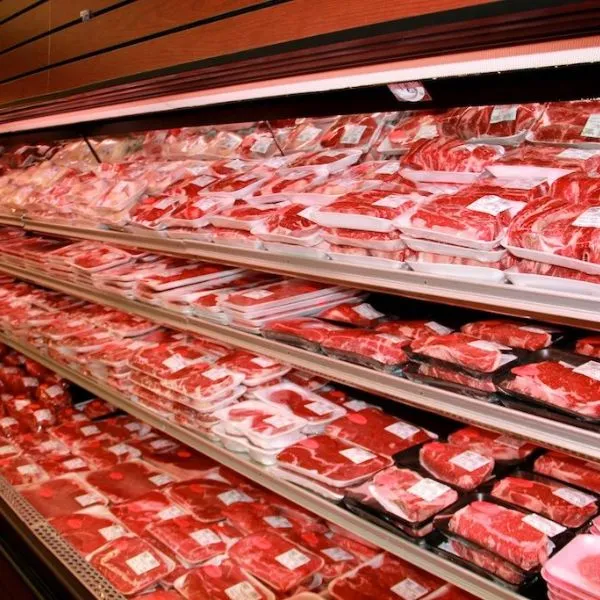How Ethical Meat Production Supports Animal Welfare
How Ethical Meat Production Helps Protect Animal Welfare
Ethical meat production is one area which, over the recent years, has been gaining attention as more and more people become sensitive about the impact of their dietary choices on animals and, consequently, the environment. The process of is concerned with animal welfare, sustainable farming practices, and humane slaughter processes. It involves the treatment of the reared animals with respect, in good living conditions that satisfy their needs and are grown with care and in a responsible way. But how does ethical production of meat support animal welfare? Let’s take a look at some of the practices that make a difference.
What is Ethical Meat Production?
Ethical meat production is practices that show concern for the animal, are sustainable, and transparent. It attends to humane treatment in the entire cycle of an animal’s life: how it lives and how it is raised and killed.
Ethical farming by nature would elude factory farming, which apart from not being bloody, comes along with other problems such as overcrowding, no expressed natural behaviors of the animals, and living conditions that are very stressful. On the other hand, ethical farming promotes smaller-scale farms and those practices that make for contented and healthy animals, space for living, proper care, and nutrition.
Key Practices in Ethical Meat Production: Humane Animal Rearing
Ethical meat production commences with the rearing of animals. Animals are kept in more spacious spaces where they can move around, forage, and exercise their natural behaviors, rather than being confined to factory farms. Free-range chickens and grass-fed beef, for example, can be taken to open pasture to graze; apart from offering a more natural environment, this improves the quality of meat.
Animals in such ethical production systems are often allowed to have fresh air, natural light, and improved living conditions. Without the use of unnecessary antibiotics and growth hormones, such rearing results in healthier animals and healthier meat.
Sustainable Farming Practices
One of the cornerstones of ethical meat production involves the use of sustainability. In terms of sustainability, farms have to take good care of the health of the land, reduce waste levels, and preserve natural resources. Ethical producers ensure that their farming methods are regenerative in approach to further improve soil health and biodiversity while reducing carbon footprints.
For instance, rotational grazing in the case of grass-fed cattle systems preserves grasslands and overgrazing and helps toward an ecosystem that is generally healthier. These techniques can give rise to carbon sequestration, too, which has its role to play in tackling climate change.
Humane Slaughter Methods
One of the most important considerations is humane killing. It basically entails the inflicting of minimal stress and misery on the animal during its last moments. This would also involve methods of killing that do so instantly or in a painless manner. Some ethical farms conduct stunning methods, like electrical stunning and stunning with carbon dioxide, which have been scientifically proven to cause much less distress than other traditional ways of killing animals for their meat.
Ethical producers also implement strict animal welfare standards during the time of their killing to ensure that even in their last moments, the animals are treated with dignity and respect.
Benefits of Ethical Meat Production for Animal Welfare
Improved Quality of Life for Animals
significantly improves animals’ overall quality of life. By providing better living conditions, animals have the freedom to express natural behaviors, reduce stress, and live more comfortably. This results in healthier animals and, ultimately, better-quality meat.
Reduced Stress and Suffering
When animals live in environments that meet their needs—like access to pasture, proper shelter, and good nutrition—they experience less chronic stress, illness, and injury. These stress-free animals produce higher-quality meat, which benefits both the animals and consumers.
Transparency and Accountability
systems often provide greater transparency. Many ethical producers receive certifications from organizations that verify their animal welfare standards. This allows consumers to make informed decisions and support practices that encourage humane farming and better animal welfare.
Ethical Meat and Its Impact on the Environment
Ethical meat production doesn’t only benefit animals—it also contributes to environmental sustainability. Farms that follow ethical practices generally have a lower environmental impact than factory farms. For example, by raising animals in natural environments like pastures, these farms help maintain healthy ecosystems and reduce reliance on harmful pesticides and synthetic fertilizers.
Ethical methods like rotational grazing and composting further contribute to healthier soil and a reduced environmental footprint of meat production.
How to Support Ethical Meat Production
Consumers can help promote ethical meat production by supporting farms that prioritize humane practices. Here’s how you can make a difference:
- Look for certifications: Choose meat products that are labeled organic, free-range, grass-fed, or certified humane.
- Buy locally: Support small-scale, local farms that focus on animal welfare and sustainability.
- Choose ethically sourced meat: Select meat from suppliers who are transparent about their farming and production practices.
By making mindful choices, consumers can help drive the growth of, benefiting both animals and the environment.
Conclusion: The Importance of Ethical Meat Production
Ethical meat production is essential for supporting animal welfare, encouraging sustainable farming practices, and reducing the environmental impact of meat production. By choosing meat from ethical sources, consumers contribute to a food system that prioritizes animal well-being and promotes sustainability.
As consumers demand higher standards of animal welfare and sustainability, ethical meat production will play an increasingly important role in shaping the future of the meat industry.



